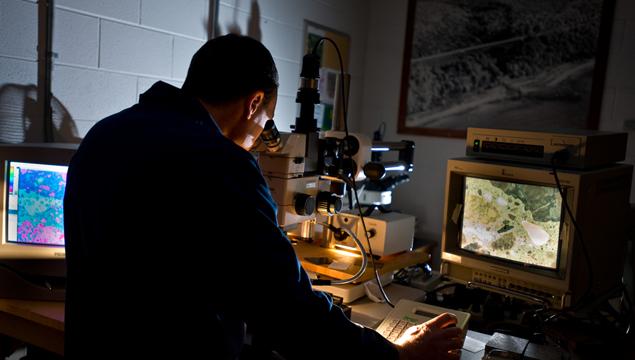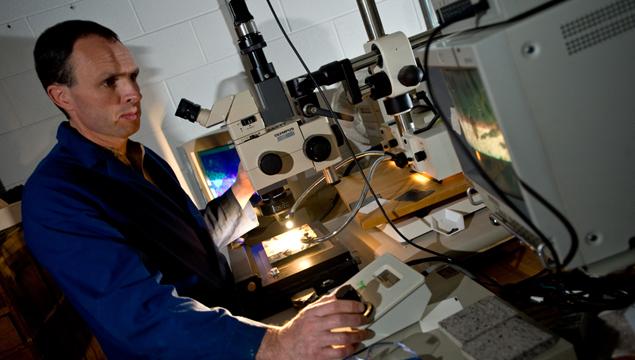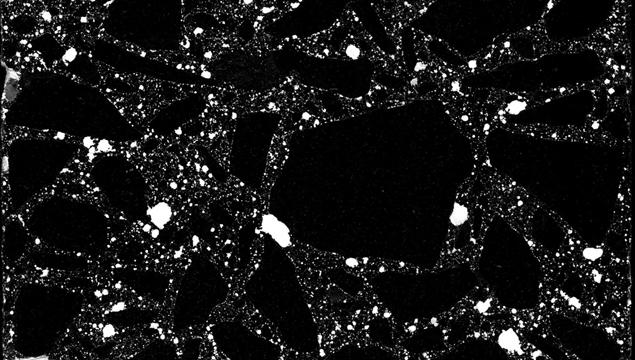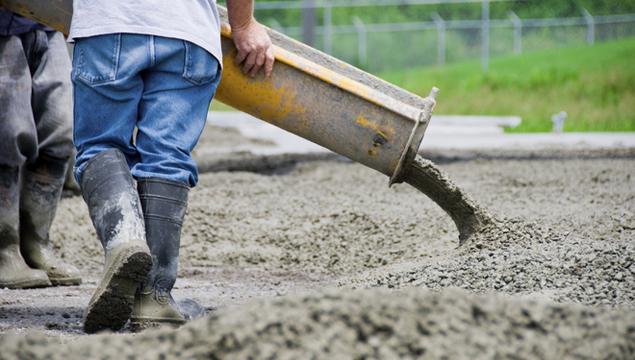Paving the Way toward an Open-Source Concrete Analysis Program
Why This Project Is Important
As our nation's infrastructure ages, state and federal transportation agencies must meet a rising need for replacements with decreasing staff and increasing technological demands. The availability of automated, open-source solutions has the potential to make the lives of analysts much easier, and would offer cost-competitive alternatives to expensive analytical instruments—and to time-consuming procedures.
Fast, easy, and inexpensive analysis of air voids (the air bubbles in hardened concrete) is mandatory for quality assurance and accountability.
Project Description
Michigan Technological University has previously developed an automated technique for analyzing the air voids in hardened concrete. With this approach, a common office scanner captures images of a polished concrete slab for computer analysis. The existing analysis software, however, centers on an expensive, and unwieldy, commercial product.
We aim to produce an open-source image analysis solution using ImageJ—an open-source image processing and analysis tool maintained by the National Institutes of Health. It currently serves as the foundation for a number of exceptional image-analysis tools used in academia and industry.
The project will also establish a presence on appropedia.org, a collaborative site for sustainability matters, in order to foster open communication and to easily reach the largest audience possible.
Developing an open-source solution will reach the largest audience possible, and will open the code to the largest number of contributors as only basic programming skills are needed to modify the code. This open-source code will duplicate the functionality of the existing package, allowing users to:
- set white balance;
- analyze a selected area of the image using one of four analysis methods;
- display interfaces for gathering necessary information;
- calibrate analysis settings; and
- write reports of analysis and optimization.
The commercial software package on which the current program runs sells for around $500—too steep a price for transportation agencies operating on a tight budget. A few interested parties contributing only a fraction of that cost to this project yields a code base that is forever free, and that has the potential for rapid evolution as more people use, modify, and improve it.
Meet the Researcher

days left
funded
last
What Your Donation Can Help Us Do:
- Develop an open-source program for concrete analysis
Recent Donors
Some donors may be hidden.





 Gifts to projects listed on SUPERIORIDEAS.ORG are received and processed by Michigan Tech Fund. Michigan Tech Fund is a tax-exempt organization under Section 501(c)(3) of the Internal Revenue Code acting on behalf of Michigan Technological University. It is the policy of Michigan Tech Fund that a portion of the gifts and/or income therefrom may be used to defray the costs of raising and administering the funds.
Gifts to projects listed on SUPERIORIDEAS.ORG are received and processed by Michigan Tech Fund. Michigan Tech Fund is a tax-exempt organization under Section 501(c)(3) of the Internal Revenue Code acting on behalf of Michigan Technological University. It is the policy of Michigan Tech Fund that a portion of the gifts and/or income therefrom may be used to defray the costs of raising and administering the funds.
Questions for the Researcher